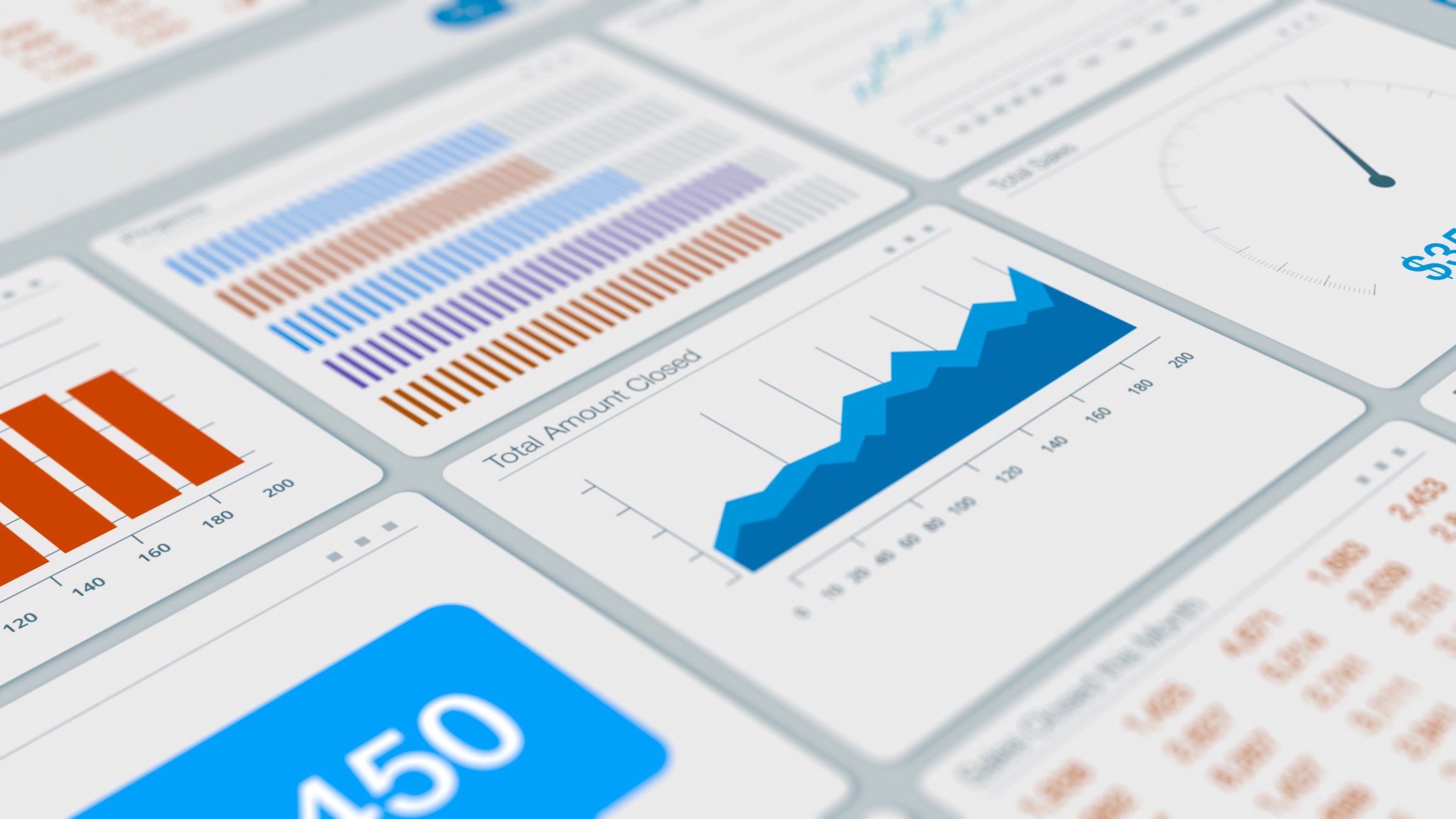Google Analytics 4 (GA4) will revolutionize businesses’ understanding of analyzing user data for years to come. Since its release in 2020, advertising agencies and companies must fully understand it to harness the power of GA4 and drive informed decisions.
As of June 2023, there are 11.2 million live websites already using GA4 across the globe. (BuiltWith, 2023). For those who are not on GA4 yet, we aim to provide an advanced overview of GA4 for readers with a deeper understanding of Google Analytics and try to answer any of your questions before GA4 is in full swing by next month.
If you are newer to Google Analytics, feel free to check out our other post, Beginners Overview of the New Google Analytics 4, for more information!
Market share of leading web analytics technologies worldwide in 2022 (Statista, 2022).
Key Features and Improvements
Compared to Universal Analytics, GA4 introduces several significant advancements that empower advertisers to gain comprehensive insights into their customer base. These key features and improvements unlock new data analysis and better decision-making capabilities.
Comparison of UA versus GA4
| Feature | GA4 | Universal Analytics |
| Data Model | Event-driven model | Session-based model |
| User Identity | Uses Google Signals and Firebase to identify users | Uses cookies to identify users |
| Reporting | Real-time reporting with a more intuitive interface | Data processing takes time, and reports are not real-time |
| Tracking | Cross-domain and cross-device tracking | Limited cross-device tracking |
| Integrations | Built-in integration with Google Ads, Firebase, and Google Cloud | Integration with third-party platforms is possible |
| AI and Machine Learning | Advanced AI and machine learning capabilities for deeper insights | Limited AI capabilities |
| Data Privacy | Better user privacy measures | Limited user privacy measures |
| Customization | More customization options for data tracking and reporting | Limited customization options |
(BusinessDIT, 2023).
Enhanced Cross-Platform Tracking
GA4 will allow you to track user interactions across multiple devices and platforms, creating a unified view of customer journeys. By combining data from mobile apps, websites, and other digital touchpoints, GA4 provides a seamless understanding of user behavior and allows for more accurate attribution modeling. You now can gain insights into how users engage with their brand across different platforms, leading to more effective strategies and more personalized experiences for your brand.
Improved Integration with Google Marketing Platform Products
GA4 offers enhanced integration with Google Ads and other Google Marketing Platform products, streamlining data sharing and analysis in general. This will seamlessly import your campaign data from Google Ads into GA4, providing a finer view of campaigns, conversions, and audience behavior. This integration enables us to optimize their campaigns based on a comprehensive understanding of user behavior, resulting in improved marketing ROI and customer engagement.
Focus on Privacy and Data Control
In response to evolving privacy regulations and consumer expectations, GA4 strongly stresses privacy and data control. You can configure GA4 to respect user preferences and comply with regulations by implementing features such as consent management and data deletion. GA4 allows you to hit the sweet spot between data collection for insights while respecting user privacy and building trust with your audiences.
Enhanced Tracking Capabilities
GA4 now uses a user-centric data model focusing on events and event-based tracking. This model will have several advantages over the traditional pageview-centric approach of Universal Analytics.
Importance of Events and Event-Based Tracking
Events play a pivotal role in GA4 by capturing user interactions and actions beyond traditional pageviews. With event-based tracking, you can gain granular insights into specific user actions, such as product views, add-to-cart events, video plays, or form submissions. Events provide a more comprehensive understanding of user engagement and valuable data for optimizing marketing strategies and user experiences.
The Concept of Custom Events and Their Role in Tracking Specific User Interactions
GA4 allows you to define custom events tailored to their tracking needs. Custom events provide the flexibility to track and measure unique user interactions crucial to their business goals. An e-commerce retailer may define a custom event to follow product reviews or customer feedback. We can gain deeper insights into users’ actions and optimize their marketing efforts by tracking custom events.
Advanced Measurement Options
GA4 offers advanced measurement options that go beyond traditional metrics. Engagement tracking allows us to measure user interactions, such as time spent on a page or scrolling behavior, providing insights into user engagement and content consumption patterns. Scroll tracking lets you understand how far users scroll on a page, indicating user interest and attention. These options provide a more nuanced understanding of user behavior and can drive data-informed optimizations.
“Businesses will also be able to track up to 300 events, or data streams, on one property and up to 30 conversions at a time. For example, if your business has websites in multiple languages, you can track all of them under one property in GA4 rather than in multiple properties in Universal Analytics.” (Paradigm, 2022).
Reporting and Analysis
GA4’s reporting features enable us to dive deeper into their data and uncover actionable insights.
Let’s explore some key aspects!
BigQuery Integration for Robust Analysis
GA4 integrates with BigQuery, Google’s cloud-based data warehouse, allowing you to perform analysis and generate custom reports. This integration enables handling large datasets and performing complex queries to more efficiently uncover hidden patterns and correlations. By leveraging the power of BigQuery, you can gain deeper insights and make data-driven decisions based on robust analysis.
AI-Powered Insights and Predictive Metrics
GA4 utilizes artificial intelligence to deliver actionable insights and predictive metrics. Machine learning algorithms analyze user behavior patterns, identify trends, and provide valuable insights. Predictive metrics, such as the potential revenue from a specific customer segment, help you forecast future performance and make data-driven decisions. AI-powered understandings and predictive metrics will help you stay ahead of market trends and proactively optimize your marketing strategies.
Exploration & Funnel Analysis
The exploration and Funnel Analysis feature in GA4 give advertisers powerful tools to visualize and understand user behavior, conversion paths, and drop-off points. There is now the option to explore user journeys, identify areas of improvement, and optimize the conversion funnel. By analyzing funnel drop-offs and behavior flow, we can uncover bottlenecks in the user journey and implement strategies to improve conversion rates.
Customization and Configuration
GA4 offers enhanced customization options to tailor the platform to their needs. Below are the key elements of customization and configuration in GA4.
Custom Dimensions and Metrics
GA4 can define custom dimensions and metrics to capture and analyze business-specific data points. Custom dimensions enable tracking additional user attributes or metadata, such as membership status or subscription type, providing deeper insights into user segmentation and behavior. Custom metrics allow you to calculate and track unique performance indicators aligning with their business goals.
Precise Tracking with Data Streams and Event Parameters
Setting up data streams and configuring event parameters is crucial for accurate tracking in GA4. Data streams define data sources, such as websites, mobile apps, or third-party platforms, and enable you to segment and analyze data separately. Event parameters provide additional context to events to track specific attributes such as the purchase value or product category. Configuring data streams and event parameters creates a more accurate data collection and enables you to focus on the metrics that matter most to your business.
Creating Custom Reports and Dashboards
GA4 helps to create custom reports and dashboards that align with your unique reporting requirements. You can choose the specific dimensions, metrics, and segments to include in their custom reports, allowing them to focus on the most relevant data for their business goals. Custom dashboards provide a centralized view of important metrics and KPIs, facilitating quick and informed decision-making. This will help streamline your data analysis process by creating tailored reports and dashboards and derive more efficient and actionable insights.
Integration and Collaboration
GA4 seamlessly integrates with various tools and platforms, expanding its abilities to leverage additional resources.
Integration with Google Tag Manager and Google Optimize
GA4 integrates smoothly with Google Tag Manager (GTM), a powerful tool that simplifies the deployment and management of tracking codes. GTM streamlines adding event tracking, custom dimensions, and other tracking configurations without requiring manual code changes. Integration with Google Optimize allows you to conduct seamless A/B testing and personalization experiments to optimize user experiences and conversion rates.
Collaboration and Sharing Insights
GA4 facilitates collaboration among team members within the platform. Multiple users can access GA4, share insights, and collaborate on data analysis. This collaboration feature fosters knowledge sharing, accelerates decision-making, and promotes a data-driven culture within the organization.
You can now share reports, dashboards, and insights with team members, ensuring everyone is on the same page and aligned toward common goals.
APIs and Data Exports
GA4 provides APIs and data exports, offering flexibility in accessing and using data outside the platform. We can extract data via APIs and integrate it into their preferred reporting or data visualization tools. Data exports allow deeper analysis, custom calculations, and advanced visualizations using external tools or platforms.
Best Practices and Tips for GA4 Usage
To make the most of GA4, consider implementing the following practices:
Set up Advanced Tracking Configurations
Explore and implement advanced tracking configurations, such as enhanced e-commerce, cross-domain, and user ID tracking. These configurations provide richer insights into user behavior, attribution modeling, and customer lifetime value analysis. Advanced tracking configurations enable you to accurately measure and understand their marketing efforts’ impact.
Utilize Segments and Filters
Using segments and filters to separate your data can help you focus on specific audience subsets or behavior patterns. Advanced components allow you to analyze performance for particular user groups, such as new visitors, returning customers, or high-value segments. Filters help exclude irrelevant data and focus on the metrics that matter most for your analysis. You can effectively utilize elements and filters to identify valuable components for targeted marketing campaigns, personalization efforts, and optimizations.
Monitor and Optimize Continuously
Data analysis is very telling for strategies, and GA4 provides real-time data. Regularly analyze key metrics, track performance trends, and identify areas for improvement. Continuously optimize marketing strategies based on data-driven insights and experiment with different approaches to achieve better results. GA4’s reporting and analysis features empower you to make agile decisions.
Google Analytics 4 will be a powerhouse for all sorts of businesses. Its capabilities provide in-depth analysis, actionable insights, and data-driven decision-making opportunities. From enhanced cross-platform tracking to reporting, customization, integration, and collaboration options, GA4 offers a comprehensive toolkit to unlock any data’s full potential. By embracing GA4 and leveraging its features, you can stay ahead of your competition, optimize marketing strategies, and drive meaningful results for your business.



